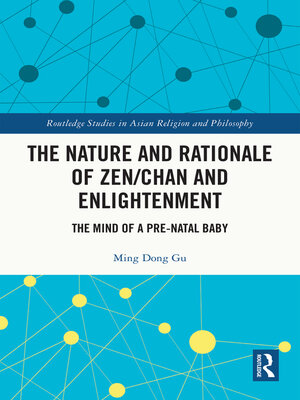The Nature and Rationale of Zen/Chan and Enlightenment
ebook ∣ The Mind of a Pre-Natal Baby · Routledge Studies in Asian Religion
By Ming Dong Gu

Sign up to save your library
With an OverDrive account, you can save your favorite libraries for at-a-glance information about availability. Find out more about OverDrive accounts.
Find this title in Libby, the library reading app by OverDrive.



Search for a digital library with this title
Title found at these libraries:
| Loading... |
This book initiates a paradigm shift away from Zen/Chan as quintessentially Buddhist and examines what makes Chan thought and practice unique and original through an interdisciplinary investigation of the nature and rationale of Chan and its enlightenment.
Exploring how enlightenment is achieved through Chan practice and how this differs from other forms of Buddhism, the book offers an entirely new view of Chan that embraces historical scholarship, philosophical inquiry, textual analysis, psychological studies, Chan practice, and neuroscientific research and locates the core of Chan in its founder Huineng's theory of no thinking which creatively integrates the Taoist ideas of zuowang (forgetting in seated meditation) and xinzhai (fast of heart-mind) with his personal experiences of enlightenment. It concludes that Chan is the crystallization of an innovative synthesis of Buddhism, Daoism, and Confucianism as well as other resources of somatic and spiritual cultivation, and that enlightenment is a momentary return to the mental state of a baby before birth.
This book will appeal to students and scholars of religion, philosophy, and neuroscience. It will also offer new insights to thinkers, writers, artists, therapists and neuroscientists as well as those practicing Zen, Mindfulness, and psychotherapy.






